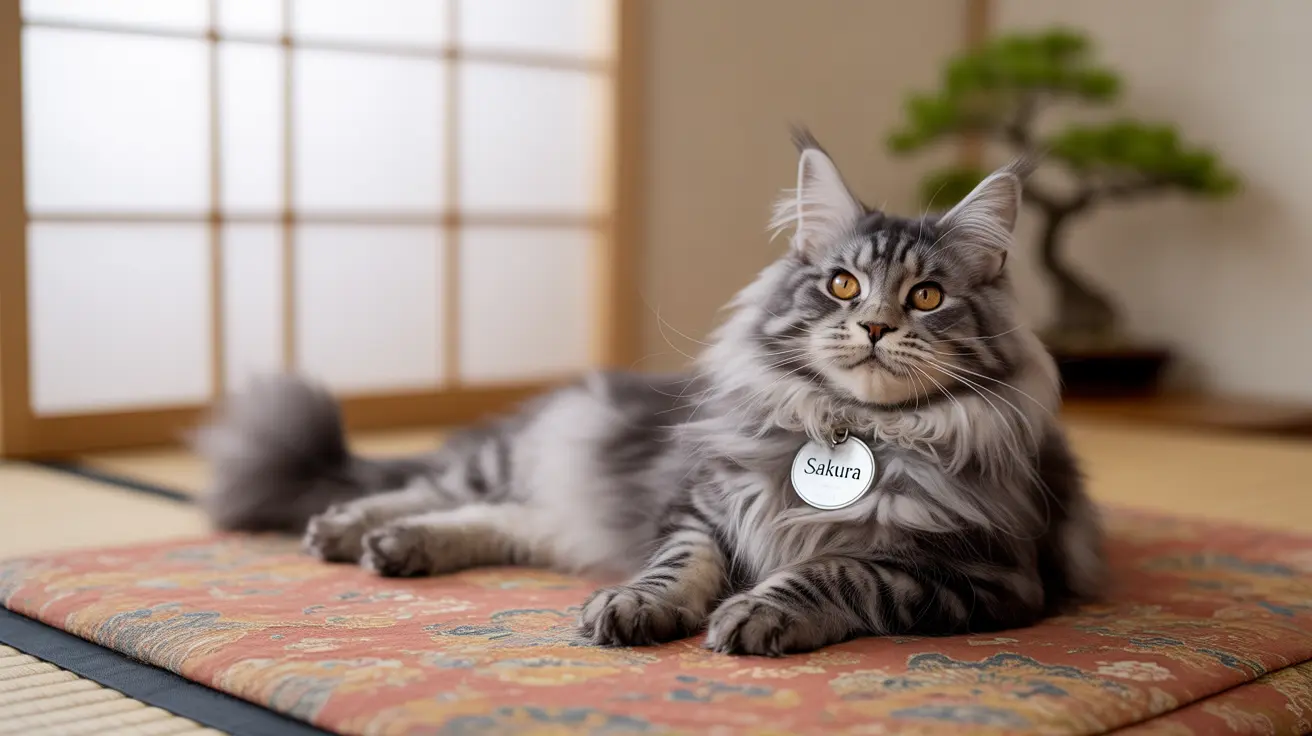Choosing the perfect Japanese cat name for your feline friend can be an exciting journey into a culture rich with meaning and symbolism. Japanese names often carry deep significance, drawing inspiration from nature, mythology, and cultural traditions that can perfectly capture your cat's unique personality and appearance.
In this comprehensive guide, we'll explore traditional and contemporary Japanese cat names, their meanings, and how to select the ideal name that honors both your pet and Japanese cultural heritage.
Traditional Japanese Cat Names and Their Meanings
Japanese culture has a long-standing tradition of giving cats meaningful names that reflect their characteristics or desired attributes:
Nature-Inspired Names
- Yuki (Snow) - Perfect for white cats
- Sora (Sky) - Ideal for blue-eyed or light-colored cats
- Momo (Peach) - Suitable for orange or cream-colored cats
- Hana (Flower) - Beautiful for graceful females
Lucky Names
- Fuku (Good fortune)
- Kenzo (Strong and healthy)
- Yoshi (Good luck)
- Neko (Cat) - A classic, straightforward choice
Gender-Specific Japanese Cat Names
Male Cat Names
Traditional male cat names often emphasize strength and nobility:
- Akio (Bright hero)
- Ichiro (First son)
- Taro (Eldest son)
- Ryu (Dragon)
Female Cat Names
Female names typically highlight beauty and grace:
- Sakura (Cherry blossom)
- Aiko (Love child)
- Midori (Green)
- Mei (Beautiful)
Pop Culture and Modern Japanese Names
Contemporary Japanese cat names often draw inspiration from anime, manga, and popular culture:
- Jiji (From "Kiki's Delivery Service")
- Luna (From "Sailor Moon")
- Totoro (From "My Neighbor Totoro")
- Doraemon (Famous cartoon cat)
Choosing the Perfect Japanese Name
Consider these factors when selecting a Japanese name for your cat:
- Physical Characteristics
- Kuro (Black) for black cats
- Shiro (White) for white cats
- Tora (Tiger) for striped cats
- Personality Traits
- Genki (Energetic) for playful cats
- Yasu (Peaceful) for calm cats
- Kawaii (Cute) for adorable personalities
Cultural Significance and Symbolism
In Japanese culture, cats are considered lucky animals and are often associated with prosperity and protection. The famous Maneki-neko (beckoning cat) is a perfect example of this cultural significance, appearing in homes and businesses as a symbol of good fortune.
Tips for Pronunciation
When choosing a Japanese name, consider these pronunciation guidelines:
- Vowels are pronounced consistently: a (ah), i (ee), u (oo), e (eh), o (oh)
- Consonants are similar to English
- Most Japanese words are stressed evenly across syllables
Frequently Asked Questions
What are some popular Japanese cat names and their meanings?
Popular choices include Momo (peach), Yuki (snow), Kuro (black), and Hana (flower). These names often reflect physical characteristics or desired traits.
How can I choose a Japanese cat name based on my cat's personality or appearance?
Observe your cat's traits and match them with appropriate Japanese words. For example, use Shiro for white cats, Genki for energetic ones, or Kawaii for particularly cute felines.
What are traditional Japanese names for black cats and their cultural significance?
Traditional names for black cats include Kuro (black), Yami (darkness), and Kage (shadow). In Japanese culture, black cats are often considered lucky and protective.
Are there gender-specific Japanese cat names, and what do they mean?
Yes, male names often incorporate words meaning strength or leadership (like Akio - bright hero), while female names typically reference beauty or nature (like Sakura - cherry blossom).
How does Japanese culture and folklore influence cat naming traditions?
Japanese culture views cats as symbols of good fortune and protection, influencing name choices that often incorporate words for luck, prosperity, and positive attributes.
Remember, the perfect Japanese cat name should feel natural to pronounce while meaningfully representing your pet's unique qualities and your appreciation for Japanese culture.






